Alles was Sie brauchen, auf einen Blick
Unsere Erkenntnisse sind detailliert und gut recherchiert. Sie behalten den Überblick darüber, was auf dem Markt passiert, und ermöglichen es Ihnen, der Konkurrenz immer einen Schritt voraus zu sein.
Sign up to our newsletter to get exclusive insights and never miss an article.

Even if you are the perfect candidate, mistakes on your CV reduce your chances of landing your dream job.
Here is a shortlist of the most easily remedied and highest impact mistakes we regularly come across.
1. IT’S SAVED IN WORD
It sounds so irrelevant, doesn’t it? Word vs PDF, what’s the difference? Let me tell you, it is minor but word takes a lot longer to open.
When I read CVs ahead of checking in with a hiring manager, if I’m pressed for time Word CVs are often the ones that fall to the bottom of the priority list. They then get read in a rush, instantly disadvantaging the applicant. For me, opening a CV in word also opens it in a different place on my screen to PDFs and thus I am more likely to forget the one or two who opt not to submit in PDF. It sounds minor but when it comes to deciding who to call for an interview it always pays to be front of mind.
2. IT’S NOT PERSONALISED FOR THE JOB YOU WANT
The only piece of advice I give friends when they ask me to look over a CV for them (after all, you don’t want to take work home… even if it does try to wine and dine you) is to make sure that you have re-written your CV to highlight the relevant experience you have. Not only does this put your best foot forward, but it also makes every subsequent step easier.
Often I speak to hiring managers who aren’t convinced by the motivation of a great candidate (who really wants the job) because their CV looks like one used for generic applications. Simply making sure you mention projects in relevant industries and functions you have performed is a great way to say that you feel you belong in their world!
3. IT’S TOO LONG
Linked to the above, if you aren’t writing your CV for the opening there is an understandable temptation to put down everything you’ve done. Exhaustive lists are exhausting, show you understand what the role is about and leave something in reserve. The applications I find make it to the top of shortlists are those that succinctly demonstrate that they tick all the boxes with a controlled list of projects.
4. IT’S NOT CLEAR IF YOU HAVE THE RIGHT TO WORK THERE
If you’re not based in the country you’re applying to work in and have existing work rights, make sure this is something mentioned in either the header or the footer of your CV. You make things difficult for a hiring team when you ask them to guess based on the languages you speak, where you went to university and where you started your career. Hiring teams sometimes have to deal with hundreds of applications and simply don’t have time to waste; so don’t give them any reason to think you might not work out.
5. IT’S NOT CHRONOLOGICAL
Some people opt to order their CV thematically according to the different types of experience they have. This makes reading rather confusing, as it becomes hard to track progression, understand moves into/out of the industry and even to quickly understand how experienced you are.
6. YOU’VE OVERCROWDED WITH CHARTS, IMAGES AND GRAPHS
A picture can be worth a thousand words. Equally, it can be worth one and take up 10 times the space on a document already bursting at the seams with your achievements. If it doesn’t explain something you could type in the same space an image is probably just overcrowding. If you’re looking for a way to get across personality and fit (often the decisive factor for startups) a cover letter is a better way to get things across.
7. YOU’VE NOT EXPLAINED GAPS IN YOUR CV
Everyone needs to take a little time out, but avoid unexplained gaps where you can. Unknowns look ominous but saying that you took some time out to have/raise your kids or go travelling says a lot about you and is a great conversation point at interview.
8. YOU’VE NOT EXPLAINED YOUR IMPACT
Pointing out the relevance of your projects is important, but so is showing that you were able to get things done. Always say what your work resulted in if you can. Everyone loves a winner.
Best of luck job hunting!
Speak to our team at movemeon if you need support finding your next role, or if you are looking to hire a skilled professional.

After some years working in professional services, there might be telling signs that you have been a consultant for too long. Here are 15 signs that it’s maybe time for you to consider a job change! Scroll down for even more signs, added by our readers.
YOU KNOW YOU’VE BEEN A CONSULTANT FOR TOO LONG WHEN…
… someone asks you what you actually do in your job, and you fall deafly silent.
… someone asks for a meeting at 10.00 and you say am or pm?
… you refer to your child’s arts and crafts project as a deliverable.
… you use any of the following words in a social context: consensus, buy-in, robust and ‘let’s step back’, deep-dive, stress-test, stakeholder.
… you refer to getting sign-off for a night out.
… you problem solve for a plan for ‘date night’.
… you say to your partner ‘I’m coming home early tonight’ and the clock’s already hit 8pm.
… you use colour coded Excel for your shopping list.
… you discuss new Excel functions with your (geeky) friends.
… you explain to the hotel staff what their room policy is.
… you’ve seen more films on a plane than in a cinema.
… you show new employees of the client how to get the best coffee from the machine.
… you perform a SWOT analysis on any major life decisions.
… someone refers to ‘being on the beach’ or ‘on the bench’ and you ask them about their annual billable hours.
… you use PowerPoint to design absolutely everything.
EXTENSION: 29 MORE WAYS OUR READERS KNOW THEY’VE BEEN CONSULTANTS FOR TOO LONG
- You receiving a birthday card signed by all front desk staff from the Marriott Renaissance in Rutherford, NJ.
- Heading out for dinner one weekend with your partner, you recommend “going back to that awesome restaurant…” and they say – that wasn’t me and there isn’t one of those in this city.
- You know the names of all three flight attendants on the Monday AM flight to NYC but not of your neighbour across the street.
- Lifetime status at a hotel or airline becomes a positive achievement.
- The rental car or hotel staff says “It’s been a while since we’ve seen you, everything OK?”
- Arriving back to your home airport customs ask ”where are you coming from sir….” and it’s a complete blank!
- You introduce yourself by starting with, “Good Morning, Good Afternoon and Good Evening”!
- You get to the airport, stop by your favourite diner, and the waitress already has your standard order ready.
- You start referring to the Marriott as home.
- You can unpack/repack in 15 minutes.
- You really geek out on posts like this.
- You wear a Marlins hat to a Bruins hockey game.
- You speak the wrong language to the postman.
- You have so many passwords, you can’t get into any device.
- You have to think twice before writing country of residence on the Customs re-entry form.
- You pull out the wrong currency at a local MacDonalds.
- Your neighbour asks “what did you think of Sunday’s game?” and you have no idea which sport, when or where it occurred.
- You have more friends abroad than in the United States.
- Your company thinks you are more loyal to it than to your community of practice.
- You are in an argument with your significant other and say “May I ask a clarifying question?”
- You get a leaving present from the receptionists at the hotel.
- You dread the thought of going to a restaurant (5 times already this week) on a weekend.
- You’re invited to the hotel staff’s Christmas night out because you’ve stayed in that hotel some many times!
- You get a 12:00 meeting request and are relieved that it’s midnight and doesn’t mess up your lunch plans.
- You know flight attendants in person.
- You teach newly on-boarded car rental staff how to process additional equipment and services.
- Locals ask you for dining advice.
- You calculate the opportunity costs of the time you spend for pleasure.
- You’ve woken up in the middle of the night and, for a few moments, not known whether you are home or not.
Something still missing? Don’t hesitate to get in touch.
At Movemeon, we connect (ex) consultants and freelancers with job opportunities, advice & events. Register now to view and apply to jobs, for insider advice & networking / industry events.

If you are thinking about making a transition into corporate strategy, Robert’s observation might be of interest. He found there are four core skills teams and individuals are missing on the client side. You can click here to have a look at his experiences.
What do ex-consultants miss the most about consulting? Okay, that is after the travel and fine dining, the free snacks, and the 80-hour work week?
It’s strong analytical and consultative problem-solving skills in their corporate work teams.
For the past five years, we’ve surveyed former consultants from BCG, Bain, McKinsey and several regional firms, seeking to better understand how their new corporate employer focuses on and builds competencies that are otherwise essential tools in the consulting kitbag.
Ex-consultants — and more than 400 have been surveyed — consistently say four core skills are missing in the teams and individuals they encounter once they move to the client side:
- Adopting a “hypothesis-driven” approach (i.e. developing a position on the likely answer early and designing work plan to prove or disprove week 1 answer)
- Prioritizing (i.e. making appropriate “80-20” judgments to avoid boiling the ocean)
- Defining strategic problems up front (e.g. identifying scope criteria for success implementation barriers, etc.)
- Structuring analysis (i.e. identifying key issues and drivers)
These skill gaps, in fact, often impede the performance of direct reports and teams.
However, the biggest surprise is not that skill gaps exist, but in how they are addressed. The short answer is: They are not.
When we ask “How does your organization currently support development of these skills?”, the majority of ex-consultants tell us that it falls to them to teach and coach the skills.
So, despite the increase in support for corporate universities and external training, the ex-consultant faces a significant demand on their time to build and mentor skills that they took for granted among their consulting teammates.
As a consultant making the move onto the client side and seeking to build a top-performing team, recognize that critical skills that you’ve been used to having may be lacking in your new colleagues. Understand that part of your new role will be getting your teams up to your speed.
At Movemeon, we connect (ex) consultants and freelancers with tailored job opportunities, industry insight & events. Register now to view and apply to jobs and for networking and events.

A couple months ago, we took some of our own advice and got out there to do a bit of networking. We met with friends and former colleagues who’ve moved from consulting into ‘industry’ (companies that make and sell a product) – generally into strategy, insights, operations, project management or business development roles.Here are 6 universal truths from our chats.
PROUD OF MY PRODUCT
Lots of people said that it’s really satisfying to point out what they do to friends and family. Grandparents understood the explanation “I work for a retailer” when they’d previously been bamboozled by “I’m a management consultant” or “I do corporate finance”.
DOING NOT ADVISING
A common frustration in professional services was feeling removed from the decision making and having to step away before any results were seen. In industry, people enjoy the feeling of “getting stuck in” and seeing the results of their efforts.
45 HOUR WEEKS
9 til 6ish is the average day for a corporate strategy or a business development position. Most had averaged 60 hours+ weeks in professional services – 33% more work!
A STEP SIDEWAYS IN £
Professional service firms pay you well. Don’t expect a big pay increase on joining (but you’ll probably earn more £s per hour). As a yardstick for you consultants out there; if you’ve 2-3 years experience you can expect £50k-70k basic salary working in a corporate strategy team (and yes, there is that much of a difference even within the same sector).
YOUR ‘IN-HOUSE’ ROLE CAN BE A STEPPING STONE
There’s a risk that because of your professional services background, you can get pigeon-holed as a ‘thinker’ not a ‘doer’. But if you’re keen on an operational role (e.g., buying, marketing, sales), use an ‘in-house’ job as a stepping stone. Network across the business and get involved asap with an operational project to prove you can do it! However, there are many networking mistakes that you should try and avoid. Set ‘operational experience’ as a goal in your appraisal and consider internal secondments. If you’re good, you can generally move departments within 2 years.
MAKES ME REALISE HOW LITTLE I KNEW OF THE INDUSTRY
Despite generally having done consulting projects in the relevant industry, everyone said it took them at least a year to get to grips with the detail of the business and the industry to the same level as their new colleagues.Rich (ex-McKinsey) talks to Quentin (ex-BCG) about leaving consulting and becoming more senior within in-house / corporate strategy. Quentin shares his tips, mistakes and experience with movemeon.com co-Founder, Rich. Click here to see more videos and interviews with leaders or subscribe to our Youtube channel.https://www.youtube.com/watch?v=qIHUiEbk6xkIf you liked this article, have a look at our other content related to moving in-house

Networking plays an integral role in so many different aspects of business today. It impacts everything from Sales & Business Development through to Recruitment (both on a business and personal level – just think of the best way for a freelance consultant to find a job). So why is it that so many of us keep committing the same fundamental networking mistakes time and again?
Truth be told, being a good networker isn’t something people are taught in the workplace – it’s just assumed that some of us are good natural networkers and others aren’t. While this is true to an extent, every person has the ability to improve their networking skills and the first step is to stop repeating the same mistakes.
Eradicating these mistakes will provide you with a strong platform to start improving your softer skills (communication, body language), which should help networking feel a more ‘natural’ affair and not ‘forced’. It’s worth noting, I don’t by any means classify myself as a networking expert, it’s just been an integral part of my professional life to date – it’s also the aspect of my work I enjoy the most. I’m under the firm belief that every person you meet in life has something interesting or insightful to offer, it’s just whether you were listening carefully enough to pick all of it up. These mistakes are specifically for establishing new relationships. The dynamics of networking using your existing black book is a different area best left for another day.
1) Being a jerk
This might seem obvious but you’d be amazed. People naturally want to do business with genuinely nice people. If you act like a jerk, you run the risk of long-term reputational damage. A condescending smart-aleck or know-it-all attitude doesn’t make you cool, edgy or a source of admiration (irrespective of what you’ve achieved), it’s the polar opposite – you’re just a jerk. Eileen Burbridge (Founding Partner at Passion Capital) sums it up best when discussing one of her key investment criteria when speaking to startup founders:
My partners and I are all at points in our lives where we’ve the luxury to decide that life’s just too short to work with people who we find objectionable, offensive or even plainly rude. We want to work with people with whom we enjoy spending time. To discern this, we’ll employ techniques that anyone uses when they’re trying to interview/recruit candidates to hire. We’ll ask questions to probe and try to get a reaction about professional and situational matters. We’re also paying attention to how founders behave even when we’re not in the room or out of earshot. So if they’re rude or dismissive of other people (no matter who they are), that’s pretty much a non-starter.
Good manners don’t cost a thing – so please, best to leave all jerky tendencies at the door (or as Eileen explains, best to lose them altogether because someone’s always listening).
2) Entering a networking opportunity without a desired outcome
Without desired outcomes, most networking discussions lead nowhere. Even if the conversation was a nice, friendly chat, did it actually have any substance, or was it nothing more than a pleasant conversation with a stranger? Your desired outcome will help steer the conversation and allow you to make minor course corrections if you’re digressing from your desired outcome. For example, if you’re speaking to a potential future employer, the desired outcome could be to leave a lasting impression of your future employability. If you drop this person an email in a few months enquiring about potential vacancies, will they able to remember you with very few prompts? Instead of talking about generic topics (the weather, sports, politics), zone in on key topics facing this individual’s business/team & where you could help in the future. This could be from publicly available information or on topics thrown up during the conversation. Is this person’s business trying to expand into China? Great, that market entry project you worked on is definitely worth casually dropping into the conversation!
Generic discussions are a dime a dozen in everyday conversation, so it’s key that every networking opportunity has some form of an end goal, otherwise, you end up just having a series of very nice chats (which is lovely in itself, however, not ideal in a networking context). All this is not to say that leaving a good impression doesn’t build any capital in a networking relationship, just try to be strategic in your discussion topics while also trying to leave a good impression.
3) Missing the balance between giving and receiving
Effective networking is the product of a smooth transfer of skills, knowledge, or relationships. Too often I see people play all their bargaining chips too early in the hope their goodwill will be immediately reciprocated, which isn’t always the case. Always be mindful of what you’re offering and receiving in each networking opportunity, trying to strike an equal balance between what you ask for and what you give back in return.
If you feel all you do is give and never get anything in return, evaluate whether that’s a relationship you want to maintain – this is especially true of any new relationships. There are a few exceptions to this, such as those individuals who enjoy leveraging their networks for the benefit of others. I would say this, however, is a minority, with the majority of people always looking for some form of reciprocal help.
4) Trying to be someone else
Be yourself. I can’t stress this one enough. People will spot when you’re being phoney or putting on a mascarade to sound smarter or appear to be something you’re not. This is the case in networking situations, and it’s true of all human interaction. Whether you’re making new friends, trying to strike up a romantic relationship or just trying to make a good impression at your new job, people can immediately spot when someone is not being genuine. Being yourself goes a long way to building rapport in any networking opportunity.
5) Not differentiating between a 'contact' and a 'connection'
A contact is someone who’ll lend a helping hand with very few expectations of that goodwill being reciprocated. It’s a relationship that’s taken time to build through establishing an ongoing relationship built on mutual respect. A connection is someone you’ve come across a handful of times and you’ve wanted to stay in touch with, however, the relationship needs to be cultivated to convert it into a contact. Professional & social networking sites have been both a blessing and a curse for networking. While it’s a fantastic way to manage multiple relationships, it’s created a series of ‘false networks’ with people assuming their ‘connections’ list is actually their ‘contacts’ list. It’s a dangerous distinction to get wrong as when you’re in a time of need (i.e looking for a new job), you might be quick to learn that your network is built on a series of connections instead of contacts. So when you thought finding your next job was a simple process of accessing your network, you’re gravely mistaken.

Moving from consulting into industry and then back to consulting is more common than you might think. Coming full circle can be extremely valuable for your career prospects. Not only does having industry experience give you a deeper understanding of your chosen industry, but it also helps you understand where your real strengths are and how best to utilise them.
Sophie, who moved from a top-tier consultancy to a consumer goods industry through movemeon (and then back to strategy consulting) shares what she has learned during her career.
We look at moving in-house in more depth here.
There were a couple of reasons why I decided to move away from consulting. I knew I wanted lots of exposure to senior stakeholders (Execs), in the right industry (consumer goods), but not in a mega-corp (e.g, Amazon). Equally, as the consulting firm grew, it felt like clients were prioritized over employees which fostered a company culture that did not fit me. I felt that after 3 years it was time for a change.
There are some invaluable lessons I’ve learned from my move out of consulting.
Lesson 1
What I hadn’t realised was, how important to me it is to: move at pace, have clear deliverables and have time & total buy-in from a manager. Also that I am not as comfortable with (or perhaps adapt at) playing corporate politics as others can be. I.e, I am naturally logical – I prefer to analyse the way to right answer rather than networking, building relationships such that I can influence. Ultimately, I got to understand that lots of my working preferences were satisfied within consulting, especially if I could find a company with a culture that felt right too.
Lesson 2
Some corporations are not used to employing consultants. Longer standing employees did not quite know what to make of me and my skill set. Also, my role was new and it became apparent that it also was not well defined – so I ended up working as a floating resource which became frustrating.
Lesson 3
Life in a corporate gave me a new and different perspective on what the client really wants, and therefore where I should invest my time more now I’m back in consulting (which means I now go home earlier!).
Lesson 4
Last but not least, working in a corporation made me more employable through greater industry knowledge and experience of working directly with an Exec team and C-Suite.
I decided to come back to consulting because I realized that the reason I left consulting wasn’t consulting itself, rather the company culture and style of working (I became more insightful about my own workplace preference). I wanted to work in professional services so I narrowed it down to PE and consulting. Fortunately, I had time to look and choose the right job for me (in the end it came down to company culture).
What I wish I knew before moving away from my first consulting firm
I wished I had really taken the time to understand my strengths and my working preferences – and then moved to a job that suited them, rather than move to a job that looked great on paper.
Click here to join and view new roles on Movemeon.
Interested in reading more career tips and insights from industry experts? Subscribe to our newsletter below:

The private equity series is a collection of articles written by Quentin, movemeon member who moved from consulting to private equity through movemeon.You can find the others articles of the series here:
- When to look for the boarding gate?
- 29 questions you should have answers to before accepting an offer
- 12 usual activities of a private equity associate
- The double-edged sword of working in private equity
- 9 principles to help you break in
Many strategy consultants dream about one day joining a ‘private equity (or ‘PE’) fund’. Those three words seem to be surrounded by some form of magical aura magnified by the fact that, most often, consultants have a limited understanding of what the private equity world really entails. With approximately $800bn worth of transactions closed annually – the equivalent of 30% of the UK GDP –, private equity investments can actually take multiple forms. Listing those forms at a high-level is the aim of today’s post.The private equity industry has developed over the years and now constitutes a funding source that can be made available to companies irrespective of their development stage:
- A nascent (or even not born yet) company can solicit venture capital (‘VC’) or seedCompanies may exist solely on paper and are almost never profitable at this stage. Venture capitalists are here to assess the future perspectives of entrepreneurs’ business models and decide whether they are ready to bet by buying a stake – often a minority one. The chances of failure are very high but the rare successes generate extremely high returns. Successful VC firms distinguish themselves by having the flair to identify great ideas – which explains why former entrepreneurs are very much in demand – and the network to hear about promising opportunities before they attract too much publicity. Analytics and valuation skills are of little relevance given that a VC investment very often comes down to ‘all or nothing’. One of the most famous examples of successful ‘all’ investment is the 10% Facebook stake Accel Partners bought in 2005 for $12m. This share today is worth more than 2,800 times more.
- The fact that a company finally becomes profitable does not mean that it does not need further capital inflow. Managers may want to open new points of sale, enter new markets, enhance their IT systems, hire a new team etc. Revenue growth is the key area of focus. Banks may still be wary of lending too much and as a consequence existing shareholders may also turn to growth equity. Beyond money, these funds also provide expertise in business development and operations to ensure that internal processes are scaling up fast enough to support the expected development. Last but not least, growth funds leverage a network of senior advisors who can act as mentors and/or board members. Given the typical private equity investment timeframe (5 to 7 years), growth equity funds target fast-moving industries such as Technology or Biotech. TA Associates and Summit Partners are two famous growth funds.
- Once a company has matured and is able to generate steady cash flows, it starts attracting leveraged buy-outs (‘LBO’) funds. In fact, the general public often tends to restrict private equity to LBOs, which benefit from more media exposure. Indeed, LBO funds manage the vast majority of assets devoted to private equity. Each fund has a different area of focus, typically consisting of a mix of industry, geography, company size and degree of involvement. But all LBO funds always rely on significant amount of debts to put pressure on the teams and ultimately boost their equity returns. To do so, LBO funds will rely on a mix of revenue growth and operations improvement – including cost-cutting. In terms of company size and type of issue, this is probably the form of operational work closest to the one offered by external strategy consultants. Depending on the total size of the fund, LBO firms are divided between small-cap (roughly under $250m), mid-cap (from $250m to $2bn) and large-cap. In this segment, you will find many of the behemoths, such as KKR, Blackstone or Carlyle. Within LBOs, funds investing in infrastructure assets are often categorised separately – motorways and retail companies have little in common. Funds such as Ardian (formerly AXA Private Equity) and Macquarie have developed expertise in that area.
- Turnaround funds focus on companies in financial doldrums, either close to bankruptcy or even already under administration. Turnaround funds are very heavily involved and focus on renegotiating the financial structure of the portfolio company with existing creditors while fixing the company’s operations. Oaktree is probably the renowned.
- Last but not least, some funds do not stand on the front line and prefer to team up with existing funds instead. This is the case of funds of funds – private equity funds whose investments are stakes of other private equity funds – and co-investment funds – funds which will buy a minority stake alongside a larger private equity sponsor. Since they are not in direct contact with portfolio companies, professionals working within those funds rely less on their operational skills than their financial abilities to ensure that they choose the right partner. LBO funds can decide to invest part of their commitments as co-investors.
The next post in this series will discuss the optimal timing for a strategy consultant to make a move to private equity. This timing partly depends on the type of fund that you are targeting. In the meantime, readers willing to discover more about the intricacies of private equity can have a look atPrivate equity demystified: An explanatory guide, written by John Gilligan and Mike Wright and freely available on the Institute of Chartered Accountants in England and Wales’ website.

The private equity series is a collection of articles written by Quentin, who moved from consulting to private equity through movemeon.You can find the others articles of the series here:
- All private equity funds were not created equal
- When to look for the boarding gate?
- 29 questions you should have answers to before accepting an offer
- The double-edged sword of working in private equity
- 9 principles to help you break in
A couple of weeks ago I had the opportunity to attendmovemeon’s Private Equity eventas a speaker. I found the discussion utterly interesting. In particular, I was surprised by how theoretical the image of private equity was in the mind of the audience. In many respects, this is normal – private equity funds do not hold workshops or Open House Days to help prospective hires understand how they operate in practice. Therefore, I thought it could be helpful to ‘raise the curtain’ and outline what the life as a junior in a PE fund could look like.The activities logically mirror the lifecycle of a portfolio company and, at a high level, we could divide them into two categories: ‘investing’ and ‘harvesting’.
THE INVESTING PHASE
It consists of discovering and assessing investment opportunities and purchasing the most promising ones. Practically speaking, the Junior Associate will assist with some or all of the following tasks:
- Sourcing investment opportunities by meeting with intermediaries (e.g. bankers, lawyers, consultants) and informally leveraging his/her and the firm’s network to discuss the latest industry trends and remain aware of the companies that may come up for sale in the short to medium term;
- Meeting sellers and management teams to establish the first interaction, introduce them to the firm and assess whether there could be mutual benefit in discussing a potential transaction. Unsurprisingly, sourcing and management meetings will require quite a bit of travel;
- Performing due diligence on the promising investment opportunities. Due diligences typically start as a ‘desktop exercise’ performed in-house, without any budget and therefore primarily relying on publicly available information and industry expert calls (the type of calls you would have already made when working on due diligences as a consultant). Appointment of external consultants are most often subject to Investment Committee approval and can cover a wide range of topics depending on the nature of the target: commercial, financial and operational are the most common areas, but you could also consider IT, legal, insurance, environmental and/or procurement & supply chain as worth an expert look. During the ‘deep due diligence’ phase, the Associate will coordinate and steer the various teams to ensure that they deliver a quality output on time;
- Estimating the expected investment returns using assumptions on future company performance and capital structure. This section is often referred to as ‘modelling’ and will eat a significant chunk of an Associate’s time in an investment process. Although the exercise can seem a bit daunting for novice consultants (who are not as well prepared as their M&A bankers counterparts), it becomes relatively systematic after a few months of practice. Expect nonetheless to spend more time than usual on this part of the job in the early stages of your PE career;
- Supporting and/or managing the investment process which includes modelling and Investment Committee memo preparation (see the two points below) but also advisor appointment, briefing and steering, sell-side meeting scheduling and preparation (including management Q&A sessions, site visits, meeting with vendor due diligence consultants etc.), term sheet negotiation (both with the seller through a SPA and with the future management team through a management equity plan) and closing process management;
- Preparing the Investment Committee memos (Word or PowerPoint documents) which will bring the Investment Committee members up to speed with the opportunity, the investment thesis and the progress made to date. Depending on the firm, the memos will be required at more or less pre-defined milestones throughout the investment process and will contain a more or less well-defined list of items (notwithstanding the length of such memos, which are expected to thicken as the investment thinking matures but still heavily depends on the firm’s culture).
THE HARVESTING PHASE
It consists of making those investments bear fruits while ensuring that the firm and its investors are regularly updated about the company’s performance, achievements and potential issues. The jJuniorAssociate will be involved by:
- Supporting the creation and the implementation of the ‘value creation plan’(often known as a ‘100-day plan’), a roadmap jointly designed by the management team and the PE fund and aimed at agreeing on the key strategic and operational priorities which need to be tackled very early in the investment lifecycle in order to achieve the investment thesis. The management team is most often in charge of implementing the value creation plan, but the PE Associate may be required to monitor progress as PMO (very similar to a consulting assignment) and assist on key initiatives when required;
- Providing assistance to management throughout the investment holding period. The degree of involvement will depend on the Associate’s available bandwidth, the PE firm’s culture (some are more ‘hands-on’ than others) and the investment performance (companies in good shape require less attention). The PE firm’s expertise is particularly valuable to support add-on acquisitions since management teams may have limited M&A experience;
- Monitoring and optimising the financial structure of portfolio companies. To maximise returns on equity, PE funds load their target companies with debt and expect the debt to be repaid throughout the life of the investment. The optimal quantum of debt results from a trade-off between the ‘return on equity’ boost and the increased risk of bankruptcy (i.e. the company does not have enough cash to repay its bank commitments) or bank covenant breach (i.e. the financial performance of the company falls below certain thresholds contractually agreed with debt holders) leverage generates. The Associate is expected to continually ensure that this balance is optimal and suggest adjustments (typically dividend recaps or equity inflows) when required;
- Preparing internal reporting documents, which are typically circulated and discussed on either a monthly or a quarterly basis depending on the firm. These documents provide an update on each company’s actual financial performance compared with budget and investment case as well as a more qualitative view on latest developments.
- Preparing reporting material for limited partners (‘LPs’), who are updated on the performance of the fund (both at aggregated and portfolio level) on a quarterly basis;
- Coordinating the company sale process including an appointment of sell-side advisors, support in the preparation of vendor due diligence documents, organisation of meetings with potential acquirers and management of negotiation-related documents (e.g. termsheets).
I have not talked about work/life balance or even the relative importance of each of those tasks, for the very simple reason that those considerations heavily depend on the PE firm. In particular, some firms have built ‘portfolio groups’ which support deal teams in the commercial and operational aspects of due diligence and/or portfolio management; as a consequence, the investment Associate should spend more time on transaction sourcing and execution. Meeting people and asking questions are the only way for the prospective candidate to build a fully-informed picture.

The private equity series is a collection of articles written by Quentin, MMO member who moved from consulting to private equity through Movemeon. We distribute our new content (like this article) on Linkedin. Follow us and never miss out on insight, advice and events. Or you can register to gain access to our weekly newsletter.You can find the others articles of the series here:
- All private equity funds were not created equal
- 29 questions you should have answers to before accepting an offer
- 12 usual activities of a private equity associate
- The double-edged sword of working in private equity
- 9 principles to help you break in
Deciding to set sail for the world of private equity (‘PE’) is unfortunately not enough to get a role in this industry. The job market remains highly competitive in this area and, as for any investment. A PE firm will only hire someone if it believes the value the new member adds is (much) greater than its cost. As a strategy consultant, there are nonetheless a handful of clear windows of opportunity where your experience and your skill set make you a ‘good bargain’.
In a nutshell, the role you aspire to will be the key driver of your timing. To summarise, there are three main paths you can follow:
- Become part of the deal team as an investment professional. This is the most common decision and here the answer is actually relatively straightforward. You should aim to jump ship as early as possible. Indeed, the skill set you will typically develop in consulting is of limited relevance for PE. Thus, the longer you wait the more significant the skill gap with investment bankers (competing for the same jobs) will grow. That being said, almost all PE firms tend not to hire anyone with less than 2 years of experience. A good way to make the most of this period is thus to join a ‘private equity taskforce’, i.e. a ring-fenced team dedicated to executing strategic and operational due diligences. Many of the largest consulting firms do host this kind of structure. In any case, applying for a deal team role will require you to bridge the skill gap that will remain in spite of everything, in particular with regards to financial modelling and structuring. A word of caution though: this path is clearly ‘high reward but high risk’ in the sense that your task force experience will represent a competitive disadvantage if you ultimately decide to change your mind and follow a more traditional corporate path after your time in consulting.
- Join the operations team. Over the last few years, the largest PE houses have created teams that focus on strategic and operational aspects of the due diligence and/or the investment management processes. KKR Capstone, Bain Capital and Clayton Dubillier & Rice are often quoted as pioneers on that front. The operational team should offer a complementary skill set compared with the one in place within the investment team. As a consequence, PE firms are particularly looking for professionals with a total of 7-10 years of experience mixing consulting and operational roles, although the latter is optional. In practical terms, you could envisage to either progress your consulting career up to the stage of Principal or leave once you are a Consultant/Project Leader and join a company, either in a strategy or a line management role. Paradoxically, being a Partner decreases your market value since PE firms are interested in project managers – not sales persons.
- Act as senior adviser. PE firms often rely on pools of very experienced industry professionals to set their Boards of Directors and to possibly fill a vacant CEO role on an interim basis. Moreover, former executives tend to have created a quite distinct network which will nicely complement the one deal teams have. This thus leaves the door open for a “Partner + CEO and/or Board member” path – not the shortest or the most straightforward I have to admit.
Conversely, you can identify periods of your consulting career when a transition to PE will be sub-optimal, if not impossible. Most notably, an experienced consultant on the verge to being promoted to Project Leader suffers from the worst of two worlds: too experienced (with the wrong kind of experience) and too expensive to become a deal professional but not proven enough to manage people and projects as part of an operations team. This general framework should not occult the fact that each PE firm has its own idiosyncrasies and that the best way to prepare for a transition to this industry is to meet as many people as possible within the environment you target – refer to my first post to narrow down your search. In any case, the sooner you start this process, the higher your chances will be.
Curated opportunities, for the leaders of today & tomorrow
Exclusive jobs, projects & data-driven insights to support your career success.
Join your peers & create a free account. Discover roles in under five minutes.

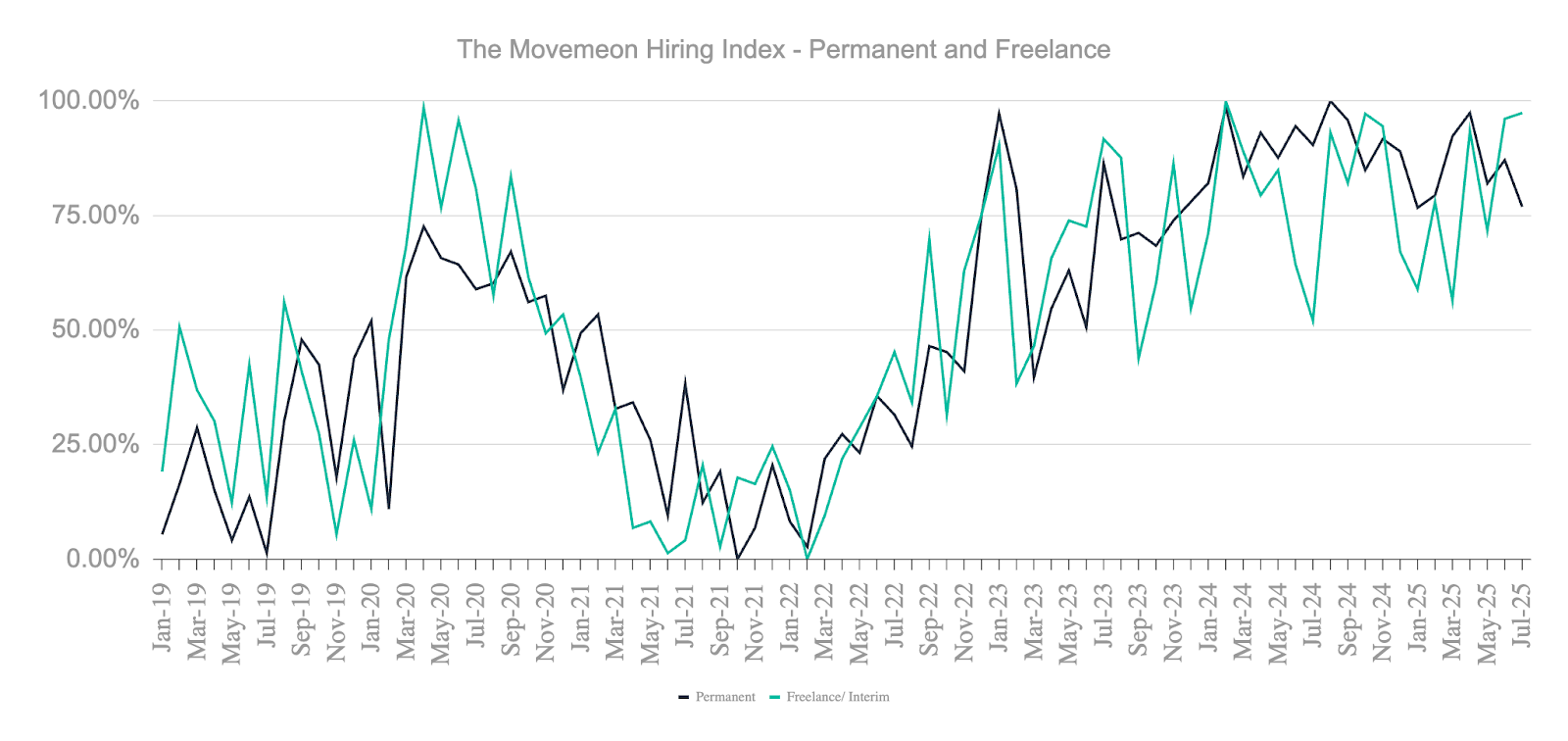


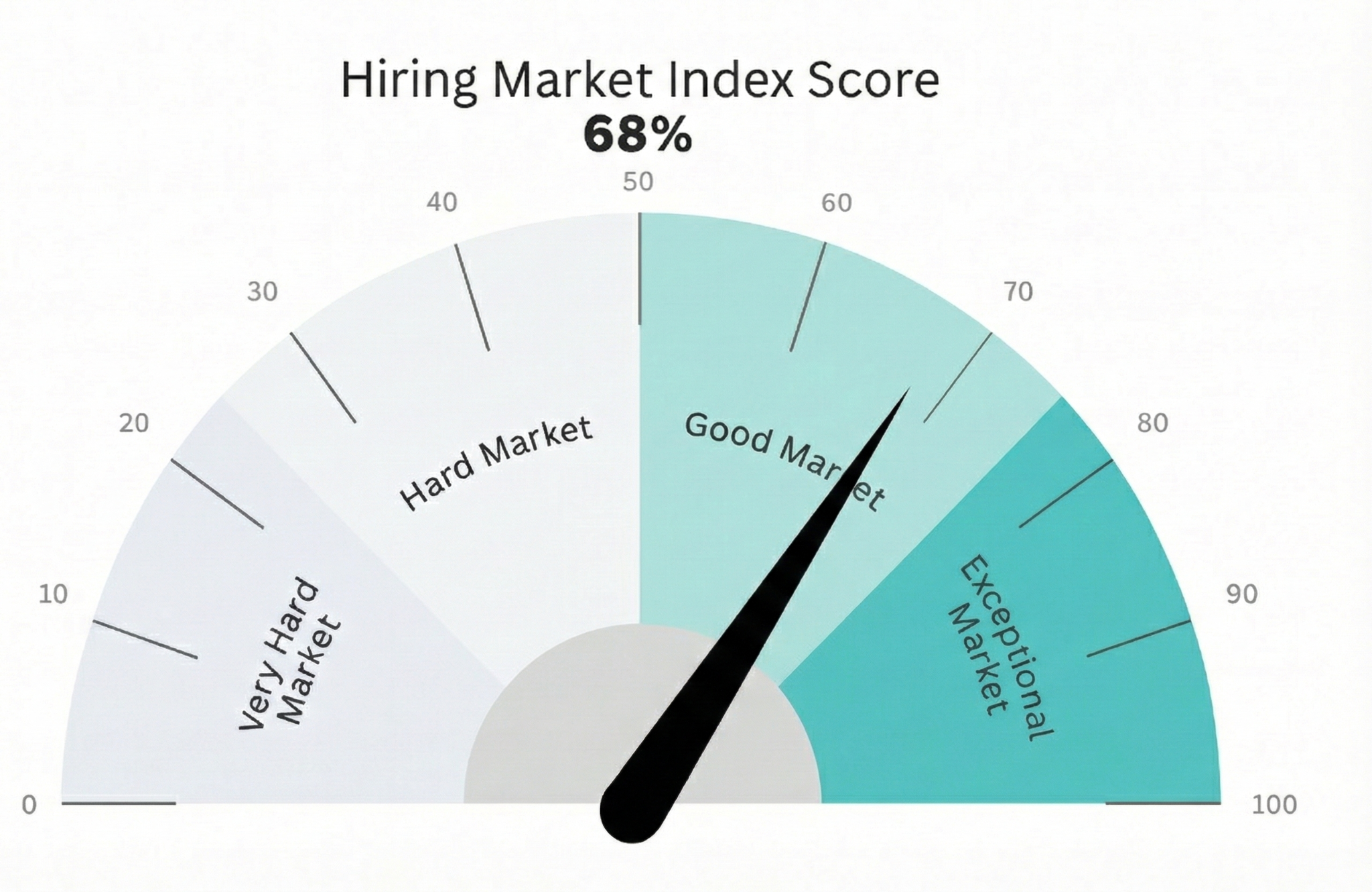
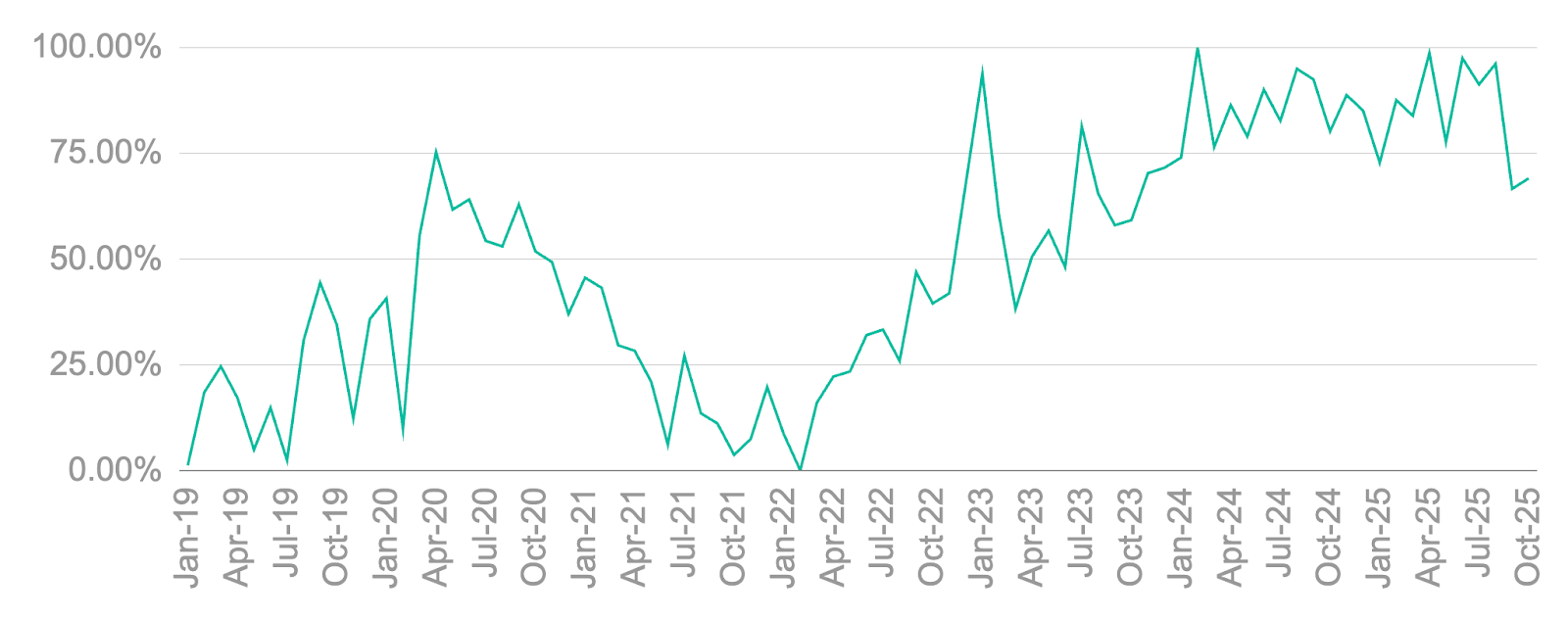
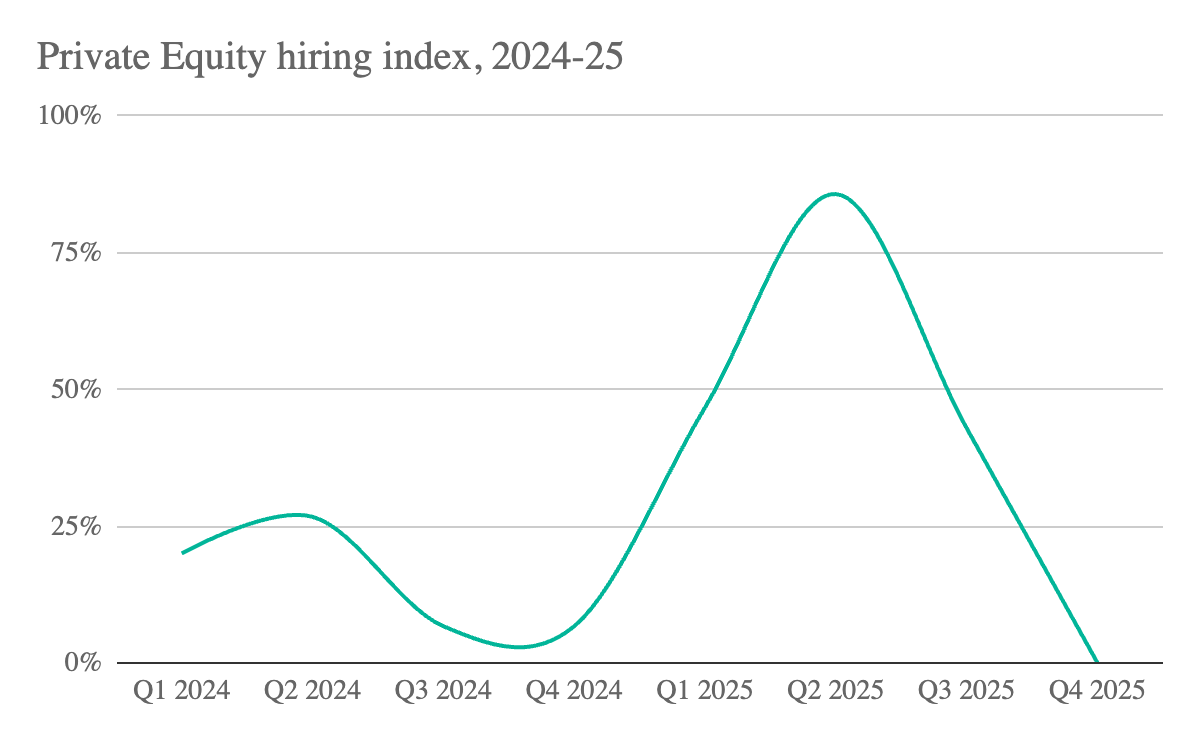

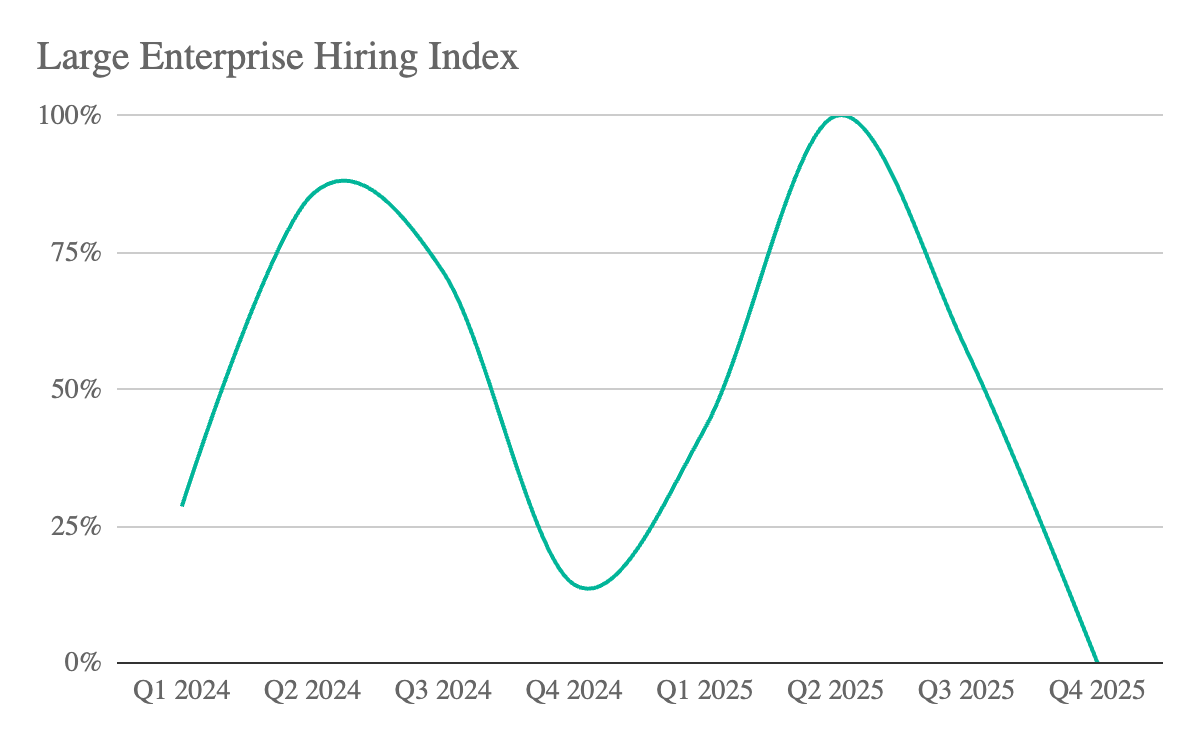
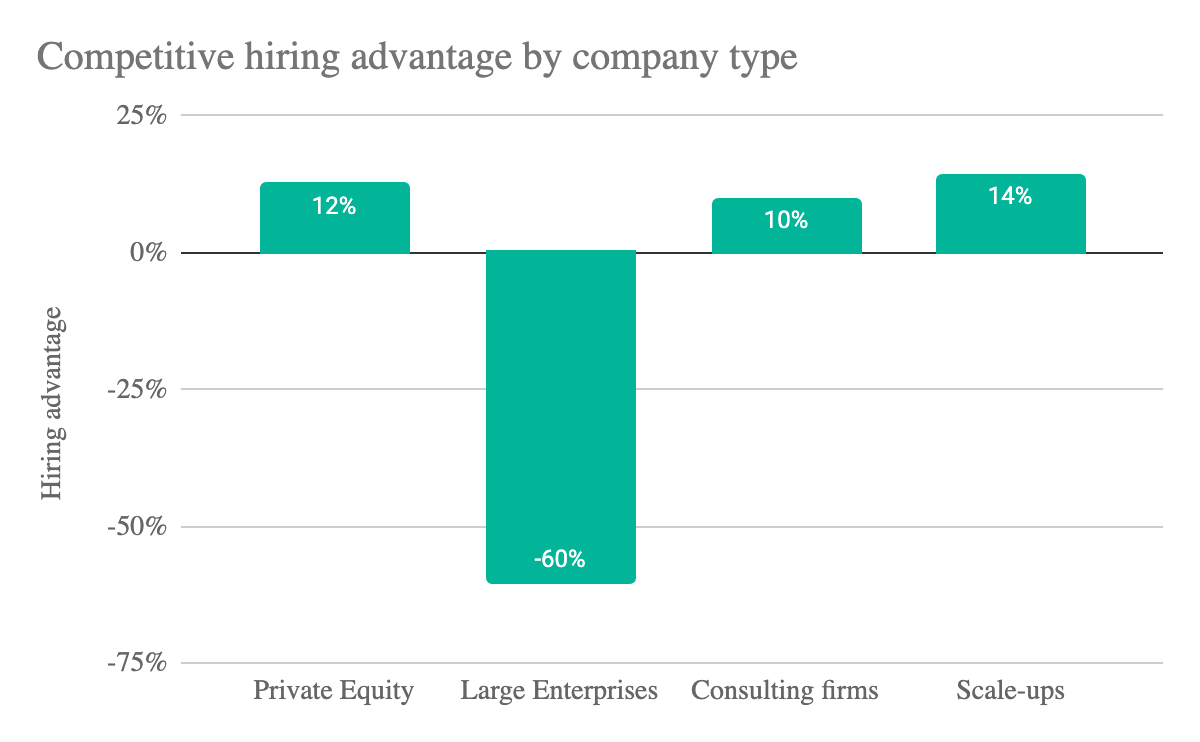
.jpg)

.png)
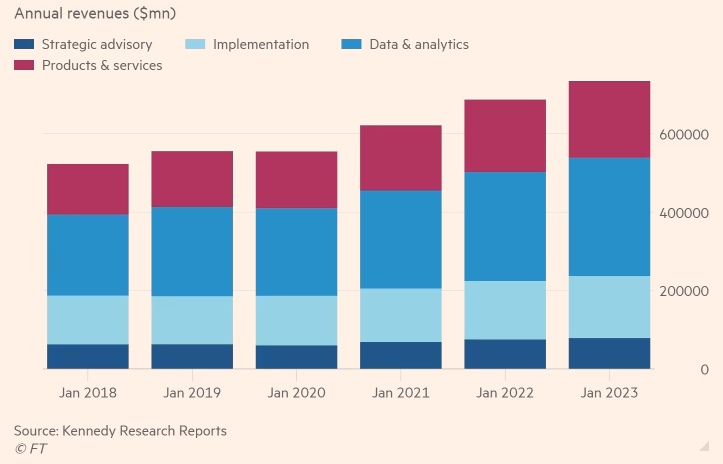
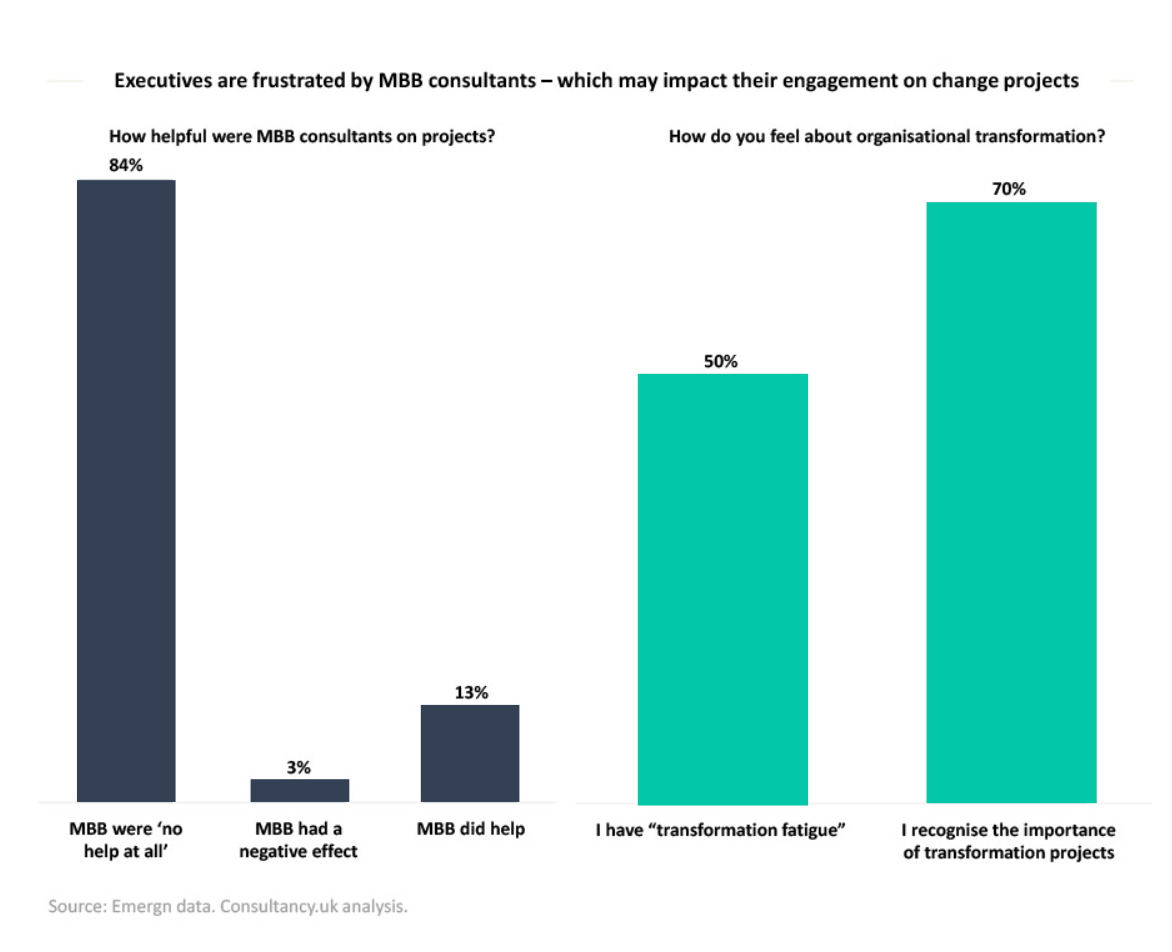
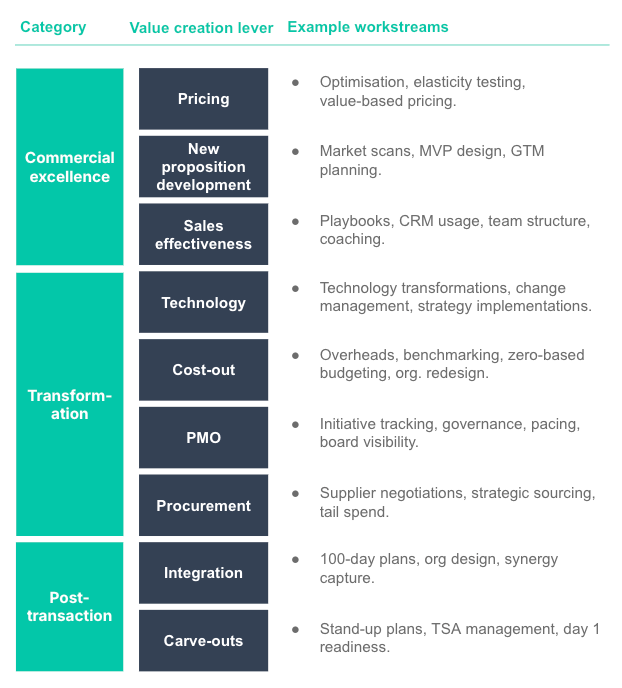

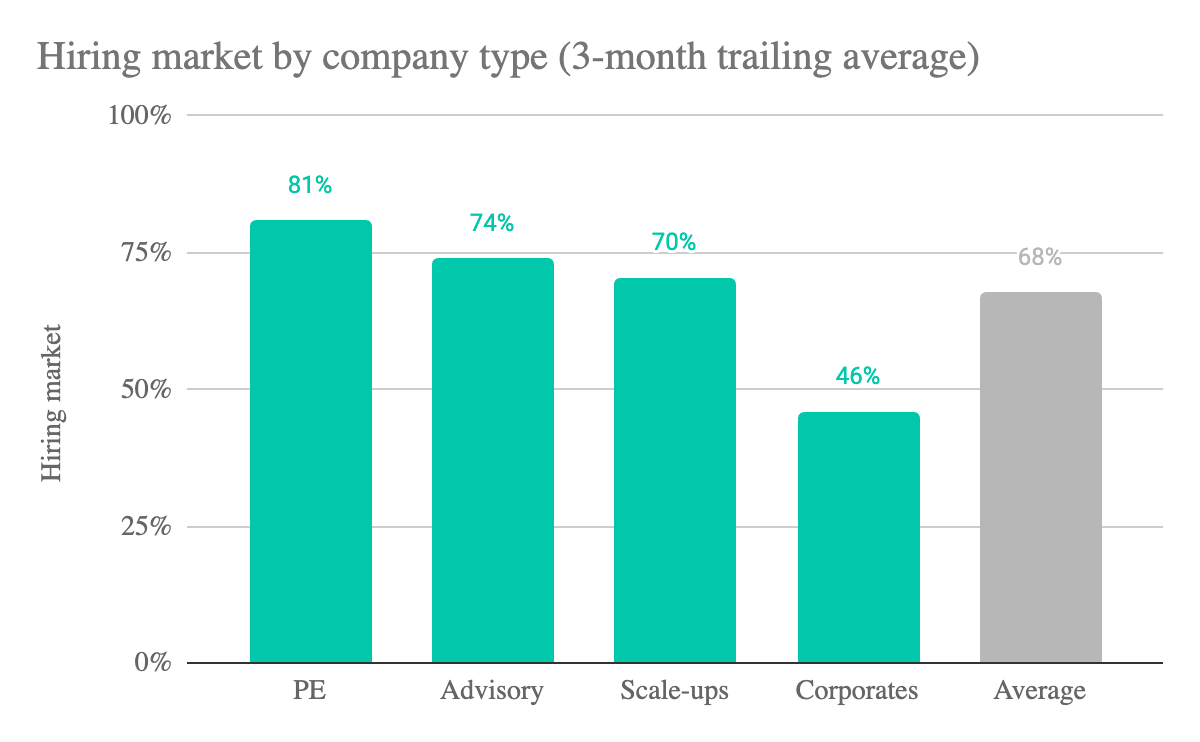
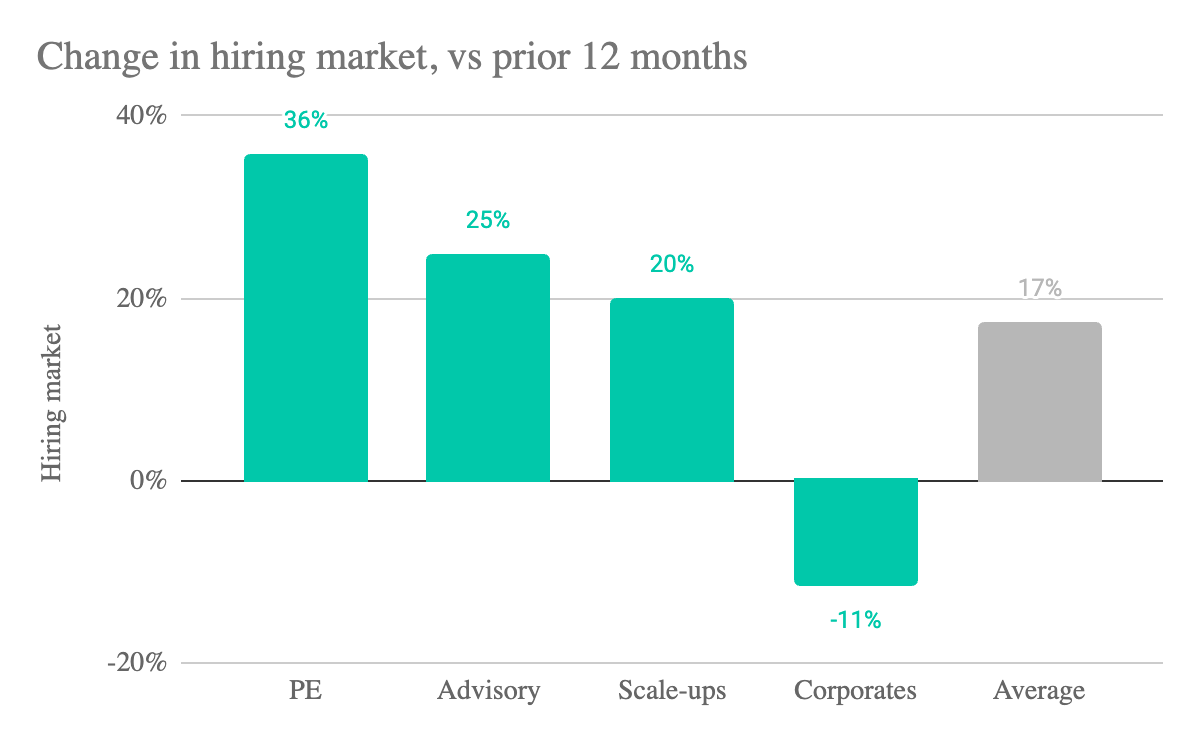


.jpg)
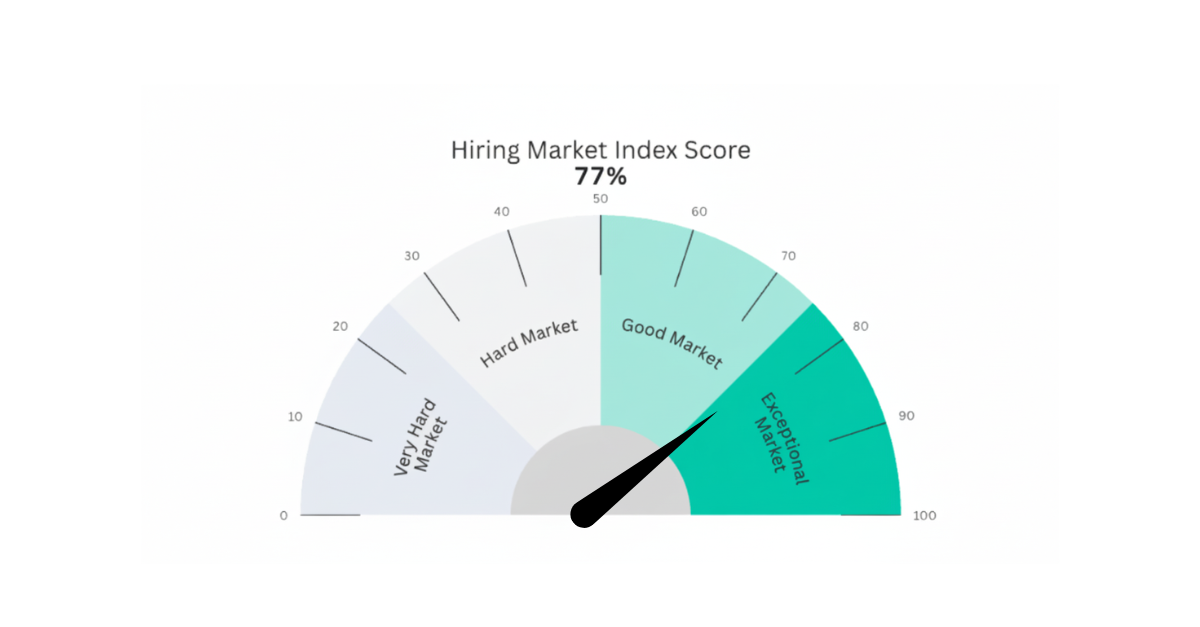
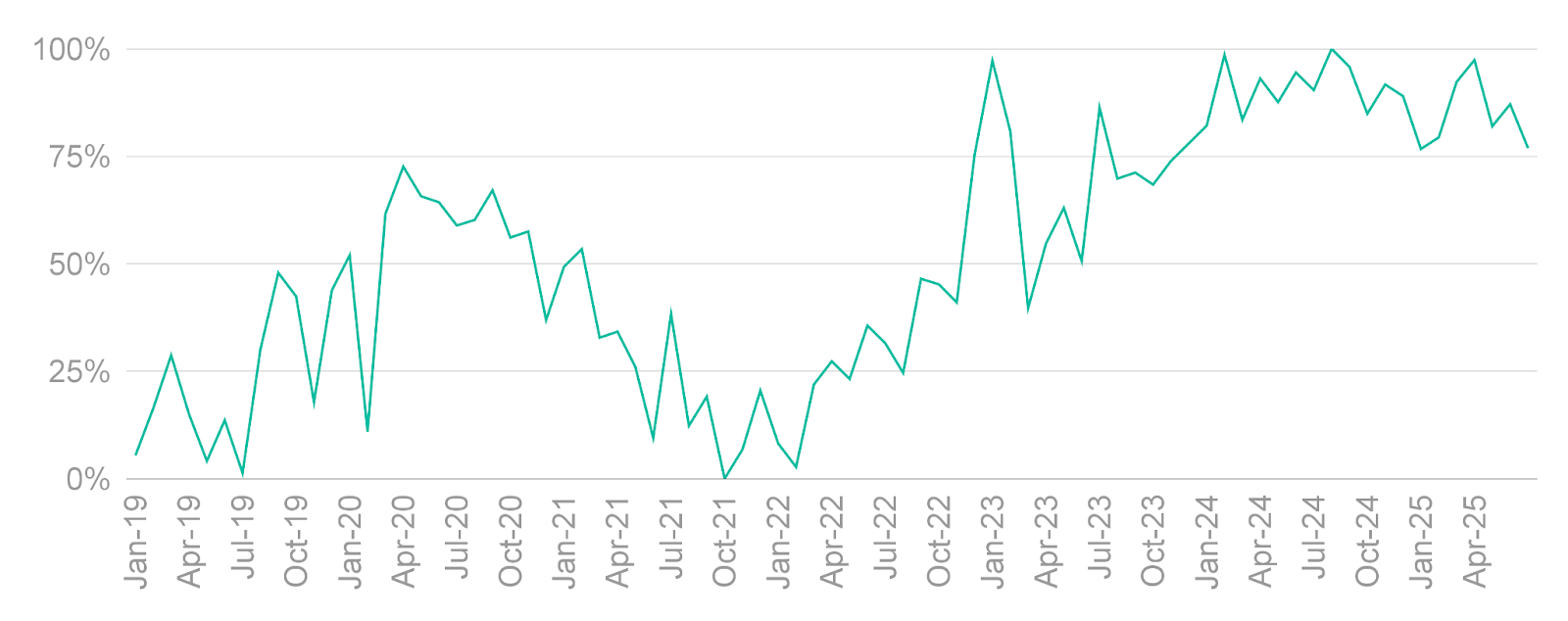
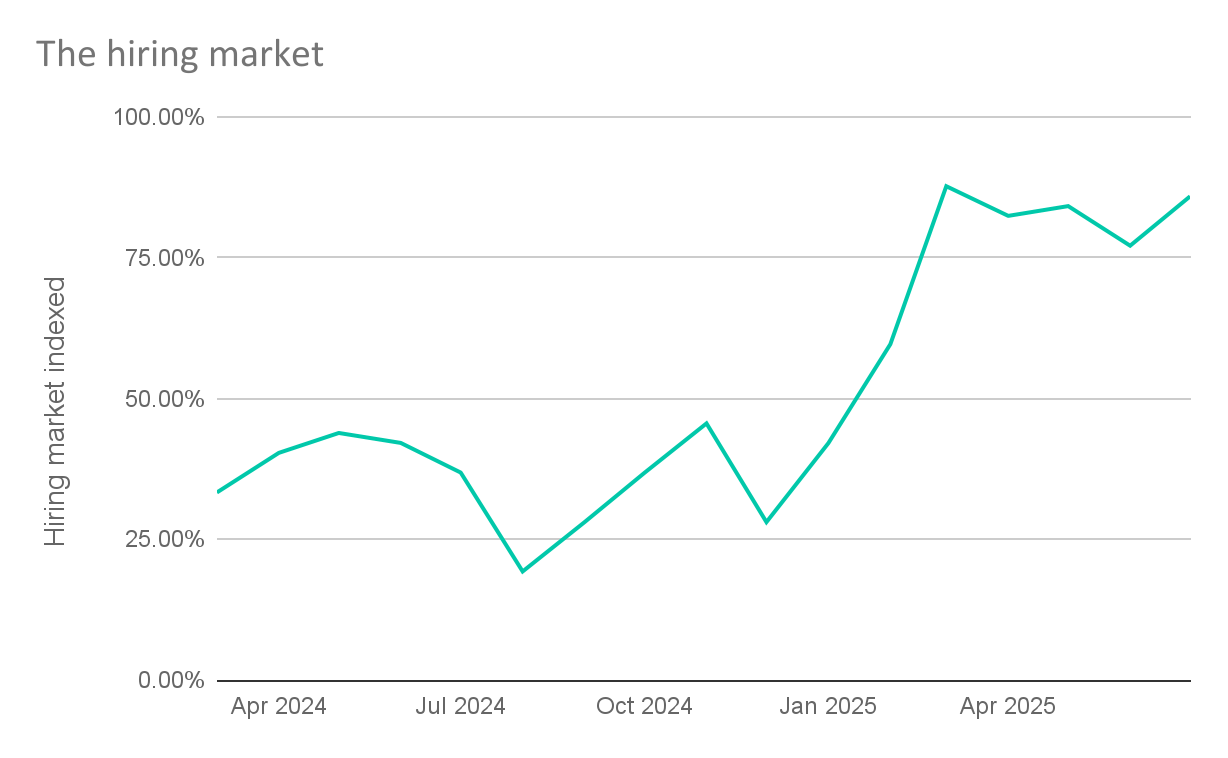



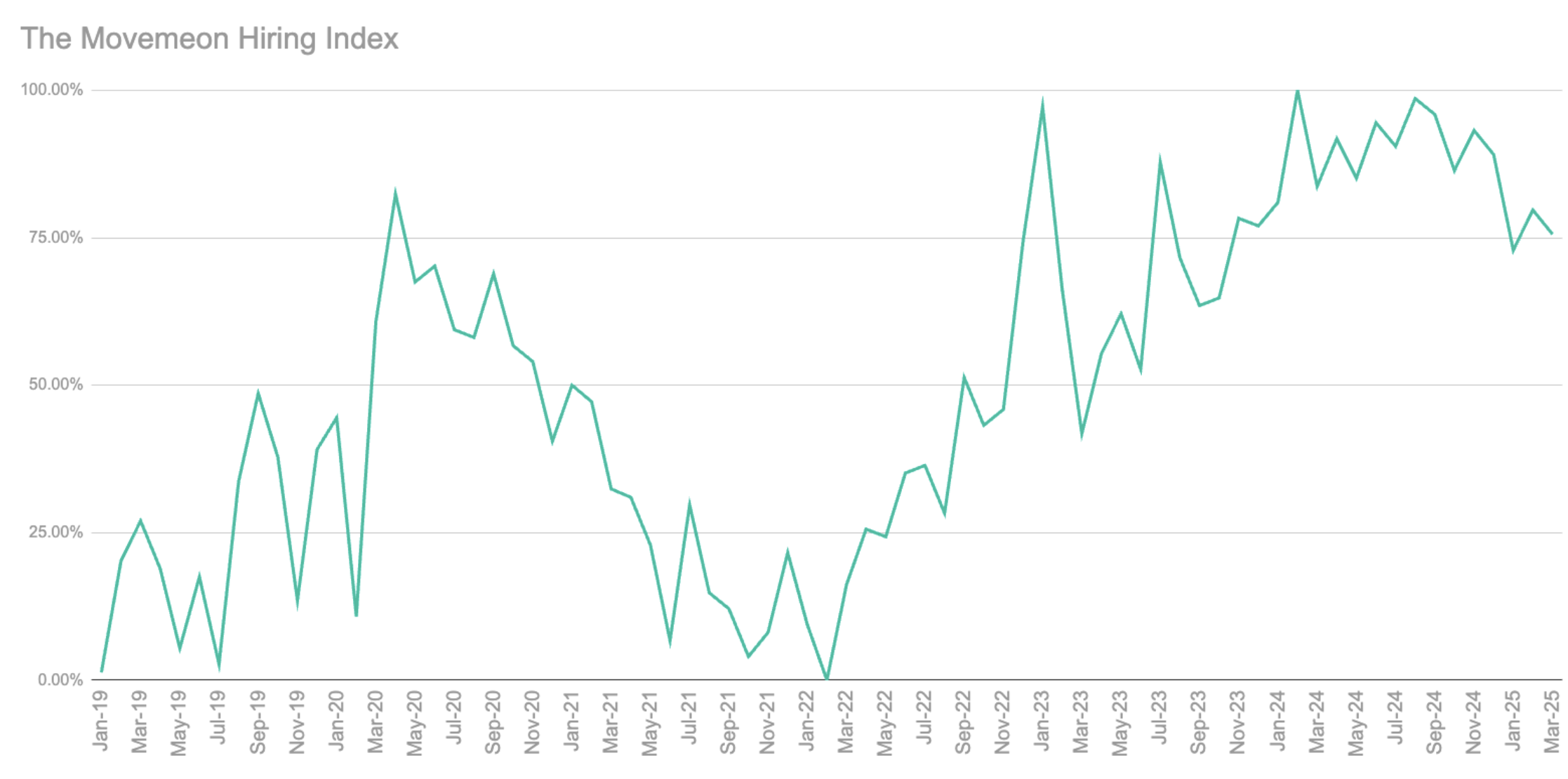



















.jpg)

